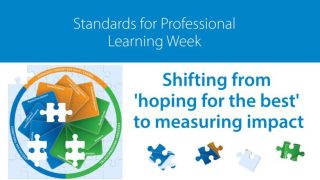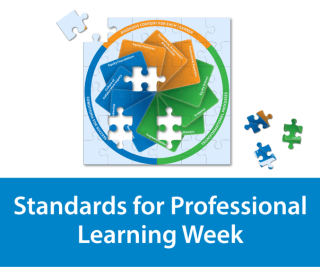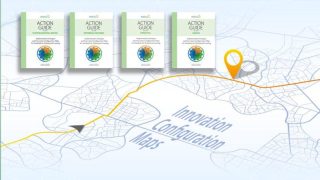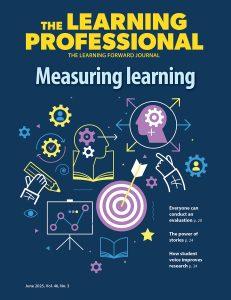In a significant move aimed at lifting student achievement, the Maryland State Board of Education has unanimously voted to adopt Learning Forward’s Standards for Professional Learning. The board’s 10-0 vote on June 25 signals a strong commitment to elevating the academic success of students by ensuring high-quality teaching practices in all 24 school districts.
State Superintendent of Schools, Carey M. Wright, hailed the standards as the “gold standard in the field” of professional learning. In a memo to board members, Wright emphasized the need for a “research-based framework” to guide professional learning in Maryland, stating that these standards would play a crucial role in enhancing teacher instruction and, ultimately, student outcomes.
Maryland embraces evidence of how the standards are associated with improved teacher instruction and student outcomes
The decision followed a presentation by Deputy Superintendent Deann Collins and Elise Brown, Executive Director of Professional Learning and High-Quality Instructional Materials. Brown pointed to research that found consistent evidence that program alignment with 2022 Standards for Professional Learning is associated with improved teacher instruction and student achievement outcomes.
“As we look at teacher instruction, you’ll notice out of the 11 Standards for Professional Learning, 10 had statistically significant outcomes for teacher instruction, meaning they were applying what they were learning in the classroom, which is what we want to see, right? We don’t want to waste anybody’s time,” Brown said. “Only one of those was not statistically significant, but it did have a positive impact on teaching practices. And then when we look at student achievement, again, we see that all 11 had positive impact on student achievement. Ten of the 11 were statistically significant as well.”
Brown also walked board members through the three categories within the standards framework:
- Rigorous content for each learner: “It’s the meat and potatoes that they’re (educators) getting in the training. So this is connecting the learning to their curriculum, to the high-quality instructional materials that they’re using and understanding those high-leverage instructional practices that they’re using in the classroom. This is where we are really building their capacity as educators.”
- Transformational processes: “This is the how. How are we developing them to make this transformation in the classroom? So this is where we dip our toes a little bit into adult learning theory. We’re making sure that there is a purpose behind the learning, that it is relevant to them, and they’re digging into real problems that they are facing in their classrooms. And everything is rooted in data and evidence. So they are following the data, they are tracking it, and applying their learning on the spot. We get into a little bit of coaching there as well.”
- Conditions for success: “This is really developing our educators as leaders. So having them have some ownership of the learning, knowing what they need, being reflective in practice. “What do I need? Where do I find it? And how do I build a community of learning within my building?” We are branching out so that the learning doesn’t stop at the teacher when they leave the professional learning. It’s continuing in the building as they grow as a school community.”
Initial implementation plans
During the board presentation Deputy Superintendent Collins said, to meet the objectives outlined in the state Blueprint, Maryland State Department of Education (MSDE) and Local Education Agencies (LEAs) need to provide high-quality professional learning and training to educators. She laid out steps for standards adoption and implementation:
- Incorporate Learning Forward’s Standards for Professional Learning into Maryland’s induction regulations.
- Revise existing guidance, and resources to align with Learning Forward’s Standards for Professional Learning.
- Build capacity around high-quality professional learning across all offices and initiatives at MSDE.
- Develop a framework and structure for LEAs to use when developing and implementing comprehensive induction programs and professional learning plans.
- Provide systemic support to LEAs around implementing existing initiatives that is grounded in high-quality professional learning.
“We know that professional learning is a lever for teachers and students to improve, but not all professional learning is created equally,” Brown told state education board members. “It is really important for us to signal as an agency the value of high-quality professional learning that is grounded in standards. When we see that happening, what we’re also going to see is growth in teacher practice and their knowledge, which in turn will impact student outcomes.”
Paul Fleming, Learning Forward’s Chief Learning Officer, commended Maryland for adopting high-quality professional learning standards, noting the significance of this decision in setting a strong framework for professional learning in the state. He highlighted that multiple states have also embraced these standards, which were revised in 2022 to provide evidence-based strategies and competencies for educators. According to Fleming, these standards are designed to equip all educators with the necessary skills to address the individualized learning needs of both educators and students.









